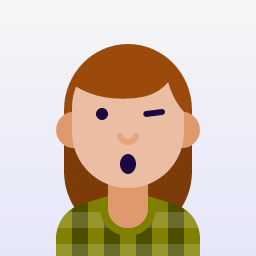Gaining fluency in a new language is an exciting journey, and understanding idioms and phrases is a key component of effective communication. One common question you may have while learning German is, “What does that mean?” This guide will provide you with various ways to express this question in both formal and informal settings. While regional variations exist, we’ll focus on the standard German used throughout Germany. Whether you’re a beginner or an advanced learner, this guide will equip you with multiple options to make your language skills shine.
Formal Expressions
In situations where you need to use a more polite or formal language, such as when speaking to strangers or older individuals, these phrases will be useful:
1. Was bedeutet das?
This phrase directly translates as “What does that mean?” and is the standard, formal way to inquire about the meaning of something. It can be used in different contexts, such as asking for the definition of a word or understanding the intent behind a statement.
2. Könnten Sie mir bitte erklären, was das bedeutet?
This expression translates to “Could you please explain to me what that means?” It is a more elaborate and polite way of asking for clarification. By using “Könnten Sie bitte” (Could you please) at the beginning, you demonstrate respect and politeness towards the person you are addressing.
Informal Expressions
If you’re in a casual setting, among friends or with someone of a similar age, you can use the following phrases to ask for clarification more informally:
1. Was heißt das?
“Was heißt das?” directly translates to “What does that mean?” and is the most common way to ask for the meaning of something among friends or acquaintances. It’s a straightforward and widely used expression.
2. Kannst du mir bitte erklären, was das bedeutet?
If you want to be slightly more polite in an informal setting, you can ask “Kannst du mir bitte erklären, was das bedeutet?” which means “Can you please explain to me what that means?” The usage of “Kannst du bitte” (Can you please) adds a touch of politeness while maintaining the casual tone among friends.
Tips:
Here are some additional tips to enhance your understanding of expressing the question “What does that mean?” in German:
1. Use visual cues
If you encounter a word or phrase whose meaning you don’t understand, it can be helpful to point to it or write it down. This allows the person you are speaking to provide an explanation or translate the term into English, making it easier for you to comprehend.
2. Emphasize body language and intonation
When expressing curiosity about the meaning of something, pay attention to your body language and intonation. Using an inquisitive tone of voice or raising your eyebrow can indicate your desire to understand more clearly. This can encourage the person you’re speaking with to explain the concept more thoroughly.
3. Utilize online resources
In today’s digital age, there are numerous online tools and resources available to help you understand the meaning of words and phrases. Online dictionaries and translation websites can quickly provide translations and definitions, aiding your language learning journey.
Examples:
Let’s take a look at some examples of how to use the phrases mentioned above:
Formal Examples:
- Was bedeutet “verschwinden” auf Englisch?
- Könnten Sie mir bitte erklären, was “schadenfroh” bedeutet?
Informal Examples:
- Was heißt “Fernweh”?
- Kannst du mir bitte erklären, was “verpeilt” bedeutet?
Remember to adapt the phrases according to the specific context and social setting you find yourself in. Language learning is an ongoing process, so embrace the opportunity to learn and grow as you engage with the German language. By expressing your curiosity and seeking clarification, you’ll expand your understanding and become more confident in your communication skills. Viel Glück (Good luck)!

